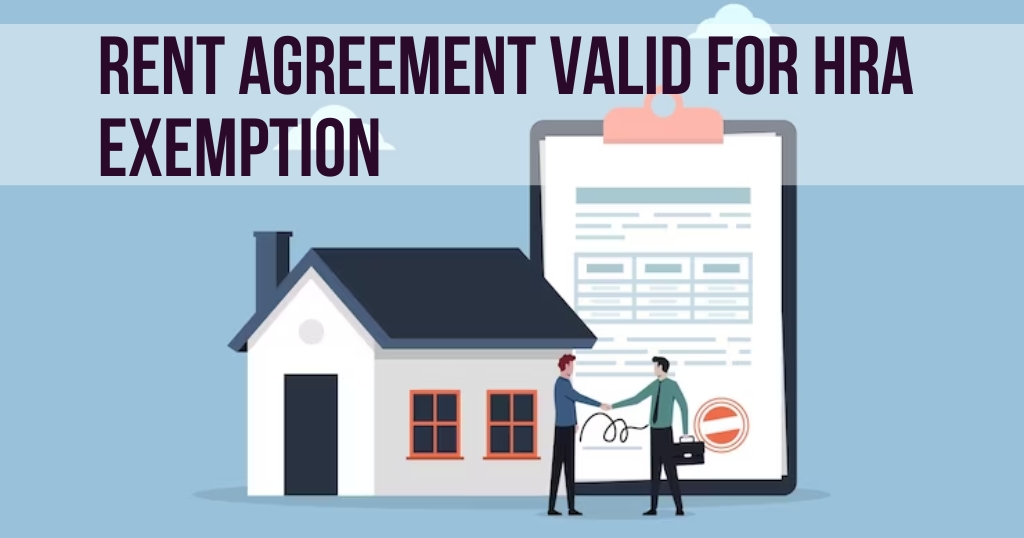Renting a house is a common practice for individuals who work in different cities or prefer not to invest in buying a property. In such cases, individuals often avail of the House Rent Allowance (HRA) provided by their employers as a component of their salary. HRA is exempt from income tax under certain conditions specified by the Income Tax Act, and one of the key requirements is submitting a valid rent agreement. In this article, we will discuss the different types of rent agreements and which ones are valid for HRA exemption.
Understanding HRA Exemption
House Rent Allowance (HRA) is a component of the salary provided by employers to employees to meet their accommodation expenses. The HRA received by an employee is exempt from income tax up to a certain limit, provided certain conditions are met. One of the primary conditions is submitting a valid rent agreement as proof of rental payment.
Types of Rent Agreements
There are different types of rent agreements that individuals can enter into depending on the requirements and terms agreed upon. The most common types of rent agreements include:
- Registered Rent Agreement: A registered rent agreement is one that is created on stamp paper and registered with the sub-registrar of assurances. It carries legal validity and provides a strong legal foundation for both the tenant and the landlord. This type of rent agreement is widely accepted as valid proof for HRA exemption.
- Notarized Rent Agreement: A notarized rent agreement is a document that is created on stamp paper and signed by both the tenant and the landlord in the presence of a notary public. The notary public verifies the identities of the parties involved and witnesses the signing of the agreement. While a notarized rent agreement is legally valid, it may not always be accepted as proof for HRA exemption, as it depends on the employer’s policies.
- Unregistered Rent Agreement: An unregistered rent agreement is a document created on stamp paper and signed by both the tenant and the landlord. However, it is not registered with the sub-registrar of assurances. This type of rent agreement may be accepted as proof for HRA exemption, but it is important to note that some employers may require a registered or notarized agreement.
Validity for HRA Exemption
The validity of a rent agreement for HRA exemption depends on the employer’s policies and the requirements set by the Income Tax Act. While a registered rent agreement is widely accepted as valid proof for HRA exemption, some employers may also accept notarized or unregistered agreements. It is important for employees to check their employer’s guidelines regarding the type of rent agreement required for HRA exemption.
Factors to Consider
When determining the validity of a rent agreement for HRA exemption, there are a few factors to consider:
- Employer’s Policies: Employers may have specific guidelines regarding the type of rent agreement they accept for HRA exemption. Employees should familiarize themselves with these policies and ensure their rent agreement meets the specified criteria.
- Income Tax Act Requirements: The Income Tax Act specifies certain conditions for claiming HRA exemption. While it does not explicitly mention the type of rent agreement required, it emphasizes the need for valid proof of rental payment. Employees should ensure their rent agreement meets the requirements outlined in the Income Tax Act.
- Duration and Renewal: Rent agreements are typically valid for a specific duration, such as 11 months. If the agreement is not renewed or expires, it may impact the validity for HRA exemption. Employees should ensure their rent agreement is valid and renewed if necessary.
Conclusion
A valid rent agreement is crucial for employees seeking HRA exemption. While a registered rent agreement is widely accepted as valid proof, notarized or unregistered agreements may also be accepted depending on the employer’s policies. It is important for employees to be aware of their employer’s guidelines and the requirements set by the Income Tax Act to ensure their rent agreement meets the necessary criteria.
Posted by Arjun

